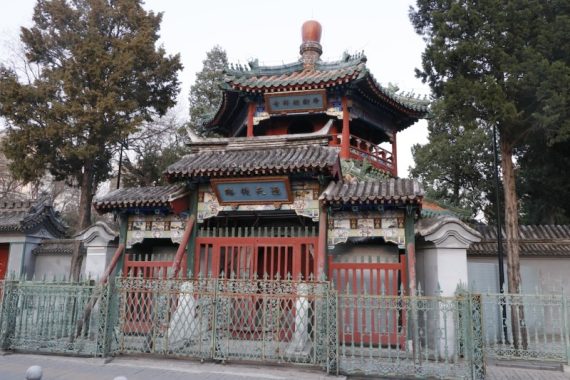A
recent report by Human Rights Watch (HRW) has brought to light the Chinese government’s expansion of its mosque crackdown operations into regions beyond Xinjiang, raising significant concerns about the perpetuation of policies that restrict religious freedom for Muslim minorities.
The HRW report, released on Wednesday, November 22, 2023, has revealed that authorities are shutting down mosques and removing their Islamic architectural features as part of an official process termed “consolidation.” This has been particularly noted in the northern Ningxia region and Gansu province, areas with considerable populations of Hui Muslims.
According to the report, which is based on public documents, satellite imagery, and witness accounts, local authorities in these regions have been actively modifying mosques to reflect more “Chinese” architectural styles. This move aligns with President Xi Jinping’s 2016 directive for the “Sinicization” of religions, an effort to integrate religious beliefs within the framework of Chinese socialism.
Systematic effort to curb Islamic practices within China
Human Rights Watch has criticized these actions as violations of religious freedom, emphasizing that the government’s claim of consolidating mosques is a facade for shutting them down. Maya Wang, the acting China director at HRW, stated that this is part of a systematic effort to curb Islamic practices within China.
These findings add to the growing international scrutiny over China’s treatment of Muslim minorities, including Uyghurs, Kazakhs, and Kyrgyz. A report by the United Nations last year suggested that China might have committed crimes against humanity through actions such as the creation of a vast network of extrajudicial internment camps in Xinjiang, believed to have detained over a million individuals.
In specific instances cited by HRW, villages like Liaoqiao and Chuankou in Ningxia saw the dismantling of mosque domes and minarets, with some main buildings being completely demolished between 2019 and 2021. These accounts have been backed by visual evidence and satellite imagery analysis conducted by HRW researchers.
A report gains attention
The Chinese Foreign Ministry has not yet responded to inquiries seeking comments on the HRW report and Beijing’s official stance on its policies towards Muslim minorities.
This expansion of mosque closures indicates an extensive application of restrictive religious policies that had previously been most visible in Xinjiang. With local backlash against such actions already occurring, as evidenced by protests in southern Yunnan province earlier this year, the international community is likely to watch closely for China’s next steps in handling religious practices and minority rights.
As the report gains attention, the pressure may mount on China to address these concerns and demonstrate adherence to international standards of religious freedom and human rights.
Sources: AP and the Frontier Post
Recommended





